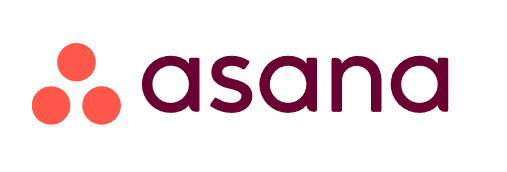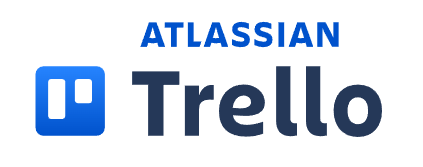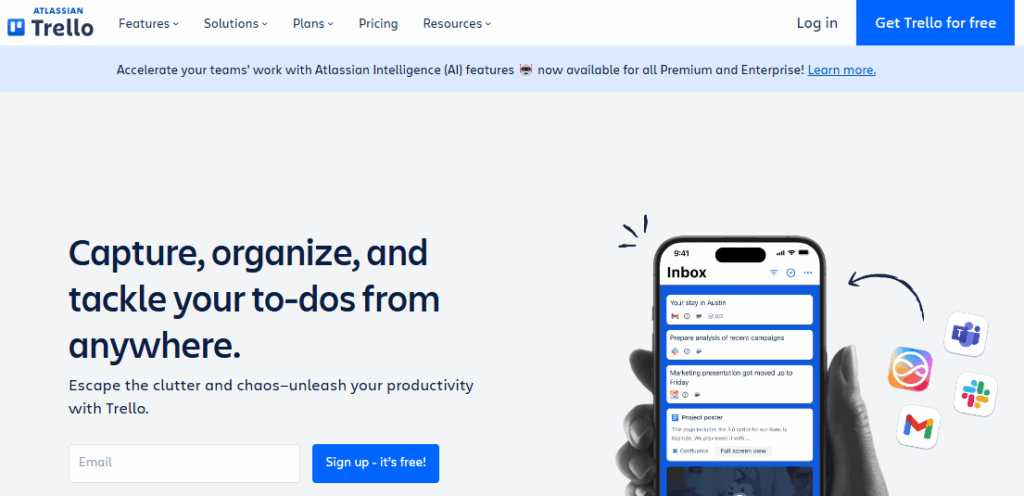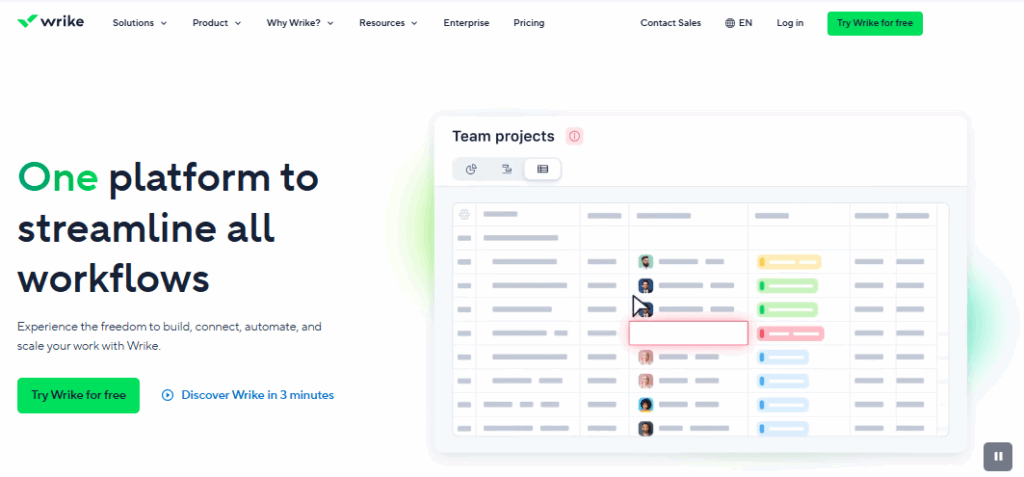Are you stuck with Monday.com but feel it’s not the perfect fit?
You’re not alone. Many businesses love Monday.com, but others feel it’s either too complex, too pricey, or missing features they really need.

Here’s the good news:
You don’t have to settle. There are great alternatives out there some are more flexible, some are cheaper, and some are even built for special use cases like logistics and supply chain management (just like ShipChain).
In this post, we’ll show you 5 powerful alternatives to Monday.com each one with its own strengths.
So let’s find the right one for your team.
Why Do Users Look for Monday.com Alternatives?
- Too many features can feel overwhelming
- Pricing is high for small teams

- Limited free version with basic features
- Needs more customization for some users
- Not ideal for supply chain or logistics work
#5 Best Alternatives to Monday.com
If Monday.com doesn’t fully match your workflow, don’t worry there are some great tools out there that can do the job just as well or even better depending on what you need. Below are 5 strong alternatives, including a special one built for supply chain businesses like ShipChain.
#️⃣1. ShipChain: For Logistics & Supply Chain Teams

ShipChain is a project and shipment tracking platform that focuses on logistics and supply chain transparency. Unlike general project tools, ShipChain uses blockchain to keep shipment data secure and tamper-proof.
Key Pointers:
1. Blockchain Technology:
Every shipment movement is logged securely, ensuring data can’t be tampered with, which is essential for audits, compliance, and trust between partners.
2. Real-Time Tracking:
Users get full visibility of where shipments are at any given moment reducing miscommunication between suppliers, carriers, and customers.

3. Route Optimization:
Helps businesses plan smarter delivery paths, saving fuel, time, and cost in logistics operations.
4. Smart Contracts:
Automates payment release or next-step actions once certain shipment milestones are reached no manual follow-ups needed.
5. Ideal for B2B Logistics:
Especially suited for manufacturers, exporters, or supply chain managers who need deep shipment tracking and documentation.
Unique Feature:
Uses blockchain for 100% secure and transparent shipment tracking.
Pro Tip:
Best suited for companies that manage deliveries, inventory, or global shipping.
#️⃣2. Asana: For Simple Team Collaboration

Asana is one of the easiest tools to manage team projects and tasks. It’s clean, intuitive, and great for tracking progress with timelines and calendars.
Key Pointers:
1. Multiple Project Views
Asana supports different viewing options like lists, boards, calendars, and timelines so teams can choose what works best for them.
2. Task Dependencies & Milestones
You can set relationships between tasks (e.g., “Task B can only start after Task A is done”) and define key project milestones to stay on track.

3. Built-In Automation Rules
Automation helps speed up work. For example, you can create rules that automatically move tasks, assign teammates, or notify members based on changes.
4. Portfolio & Workload Tracking
In paid plans, Asana allows managers to track several projects at once and see how work is distributed across the team to avoid overload.
5. Best for Marketing, Design, and Ops Teams
Asana is a solid choice for teams that value visual clarity, smooth collaboration, and deadline tracking — without needing too many complex features.
Unique Feature:
Easy timeline and calendar view for project tracking.
Pro Tip:
Perfect for teams that want clarity and accountability without too much setup.
#️⃣3. Trello: For Visual and Solo Task Management

Trello is a fun and visual way to manage work. You can drag and drop tasks across lists on a board, making it ideal for small teams or freelancers.
Key Pointers:
1. Beginner-Friendly Interface
Trello’s drag-and-drop board layout makes it super easy for anyone to start using. You can create lists like “To Do,” “Doing,” and “Done” to track your progress.
2. Unlimited Boards
Even on the free plan, Trello lets you create multiple boards for various projects — like client work, content calendars, or home planning.
3. Custom Fields & Advanced Checklists
You can add custom fields such as priority levels or status, and create detailed checklists inside cards for better task tracking.

4. Calendar & Timeline Power-Ups
While the native Trello tool is simple, Power-Ups help expand its features. These include calendar views, timeline tracking, and third-party integrations.
5. Best for Freelancers or Small Teams
Trello works well for individuals or teams who want a clean, visual, and lightweight task management system with just the essentials.
Unique Feature:
Simple, visual boards that are easy to use even for beginners.
Pro Tip:
Great for managing personal to-do lists, marketing campaigns, or editorial calendars.
#️⃣4. ClickUp: For All-in-One Project Management

ClickUp is loaded with features from task management to docs, goals, chat, and even whiteboards. It’s designed to replace multiple tools in one platform.
Key Pointers:
1. Unlimited Tasks & Members
ClickUp’s free plan is one of the most generous on the market. It allows unlimited users and tasks, making it great for small teams with limited budgets.
2. Everything in One Tool
ClickUp offers task lists, docs, chat, goals, time tracking, and more all in one place, so you don’t need multiple tools for your workflow.
3. Template Library
It includes ready-to-use templates for Agile workflows, marketing plans, OKRs, client onboarding, and more — making it easy to get started quickly.

4. Customization at Scale
You can fully control how your workspace looks and functions by customizing workflows, views, fields, and even status updates.
5. Ideal for Tech, SaaS, and Product Teams
ClickUp is well-suited for fast-growing businesses that need scalability, deep integrations, and strong task management features.
Unique Feature:
Customizable everything from task types to status colors.
Pro Tip:
Ideal for growing startups or tech teams that need full control and deep features.
#️⃣5. Wrike: For Enterprise-Level Work Management

Wrike is designed for large teams and agencies. It supports detailed project planning with Gantt charts, time logs, and strong reporting tools.
Key Pointers:
1. Gantt Charts & Critical Path Tracking
Wrike makes complex project planning easier by offering dynamic Gantt charts and tools to find the “critical path” of a project.
2. Advanced Access Control
It allows you to create roles, permissions, and user groups, making it ideal for large organizations with different access needs.
3. Real-Time Collaboration on Files
Wrike supports collaborative editing, proofing, and version control directly within the app — reducing the need for external file-sharing platforms.

4. Time & Budget Management
Managers can log hours, track actual vs estimated time, and view cost reports to keep the project within budget.
5. Scalable for Enterprise
With high-end features like detailed reporting, resource allocation, and multi-layer project tracking, Wrike is designed for large teams and agencies.
Unique Feature:
Enterprise-grade reporting and team workload balancing.
Pro Tip:
Best if you handle multiple large projects and need strong reporting features.
🧾 Comparison Table
| Feature | ShipChain | Asana | Trello | ClickUp | Wrike |
|---|---|---|---|---|---|
| Best For | Logistics & Supply Chain | Small Teams & Collaboration | Visual Task Boards | All-in-One Project Management | Enterprise Teams & Reports |
| Blockchain Security | Yes | No | No | No | No |
| Task Management | Yes | Yes | Yes | Yes | Yes |
| Time Tracking | Yes | No (via integrations) | No (via Power-Ups) | Yes | Yes |
| Visual Workflows (Kanban, etc.) | Yes | Yes | Yes | Yes | Yes |
| Custom Workflows | Yes | Limited | Yes (with Power-Ups) | Yes | Yes |
| Collaboration Tools | Medium | Strong | Medium | Very Strong | Very Strong |
| Reporting & Analytics | Advanced | Basic | Basic | Detailed | Enterprise-grade |
| Free Plan Available | No | Yes | Yes | Yes | Yes (limited) |
🏆 Which is Better? Monday.com or Its Alternatives?
Choosing between Monday.com and its alternatives depends on what your team actually needs. Let’s break it down:
| Situation / Need | Best Choice | Why? |
|---|---|---|
| Need full work management platform | Monday.com | Great for managing tasks, timelines, dashboards & automation. |
| Work in logistics or supply chain | ShipChain | Offers secure, real-time shipment tracking with blockchain. |
| Want easy task planning for teams | Asana | Clean UI and great for team collaboration with basic task tools. |
| Love visual boards | Trello | Drag-and-drop Kanban boards perfect for individuals & small teams. |
| Need all-in-one customizable tool | ClickUp | Offers docs, chat, time tracking, and deep customization. |
| Work in large enterprise environment | Wrike | Powerful for team reporting, resource allocation, and workload view. |
Final Word:
There’s no one-size-fits-all when it comes to project management tools but if your work involves shipments, logistics, or supply chain tracking, then ShipChain is clearly the best choice.

Unlike general tools, it’s built specifically for logistics teams, with blockchain security, real-time shipment tracking, and smart automation features that most alternatives don’t offer.
For industry-specific needs and real transparency in operations ShipChain wins.
🔗 Must Read:
- Complete Monday.com & Jira Integration Setup for 2025
- How to Use Monday.com? Tutorial For Beginners 2025
🙋♂️ FAQs
1. Can I migrate my data from Monday.com to another tool?
Yes. Most tools like ClickUp, Asana, and Wrike support CSV imports, and some even offer automated migration tools. Just export your Monday.com data and follow their import guides.
2. Which tool is the most feature-rich alternative to Monday.com?
ClickUp is considered the most all-in-one platform. It offers task management, documents, chat, goals, time tracking, and full customization — often replacing 3–4 tools in one.
3. Is there an open-source alternative to Monday.com?
Yes, OpenProject is a good open-source option. It’s great for teams that want full control and customization, especially for development or government projects.
I’m a CRM and Xero expert with over 6 years of experience. I specialize in researching, testing, and simplifying complex systems like Xero and other CRM tools. From setting up workflows to writing easy-to-understand content, I help businesses choose the right platforms and use them better for real growth.